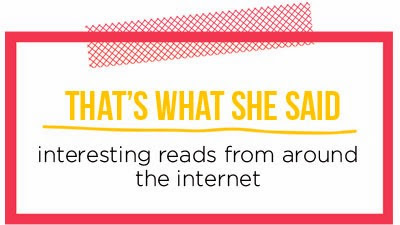 Don’t Call Him A Freak: Colin Kaepernick Opens Up On Quarterback Sociology, Tattoos, Adoption | TIME.Com
Don’t Call Him A Freak: Colin Kaepernick Opens Up On Quarterback Sociology, Tattoos, Adoption | TIME.Com
“My parents told me from the time I can remember that, ‘yeah, you’re adopted. But this is your family.’ I can remember my mom, she tells me this story: when I was little, I was looking at her and I was like, ‘why isn’t my skin the same color as yours?’ She was like, ‘oh, you’re adopted, but I wish I had pretty brown skin like you.’ That’s something that – [pause] – they made me feel like even though it wasn’t necessarily my birth family, that’s my family. Everything they did, they tried to make it uplifting. They tried to make it special. They tried to make it a positive environment. Looking back, I think that was the biggest thing. Just the love and affection that they showed was what made everything so smooth for me.”
When Elite Parents Dominate Volunteers, Children Lose | NYTimes.Com
The problem is bigger than that. It’s an inescapable fact that extracurricular activities, which increase student investment in school, are planned by parents who have ample time and money, who sometimes lack insight into the lives of students whose parents don’t. I tried to advocate for these students. My empathy is tangible. Where exactly do you live again? a volunteer asked when I said pizza, not sushi. I felt the condescension behind the question. I smiled while clenching my teeth — overruled, because parents who would agree with me can’t leave work.
The 6 Most Shockingly Irresponsible “Fitspiration” Photos | The Good Men Project
Strong isn’t really replacing skinny; being skinny is no longer enough. Now, ladies, you need to be skinny and ripped. It’s an additional layer of self-loathing (perfectly suited for hypergymnasiacs), just in case people had started to get desensitized to the omnipresent and psychologically crippling display of corpse-thin women in the media. . . . According to these photos, all this notable strength that is the new standard of beauty is only useful for the exact same thing being skinny was: sex appeal. Not adventure or longevity, or even ability; Nope, just for sexy times.
When It Feels Risky To Sell Your Art | Simple Mom
But once in a blue moon, a purveyor of your art will complain that you’re selling your work, something you could give away for free. Eleven months of the year, for years at a time, your words (or whatever your preferred medium) are free for anyone to consume. But for a combined total of a few weeks annually, you need (and want) to use your platform to sell your talent—your words, your art, your photos. And they complain, presumably because they’re used to finding almost any sort of art for free on the Internet.
Do What You Love, Love What You Do: An Omnipresent Mantra That’s Bad For Work And Workers. | Slate
“Do what you love” disguises the fact that being able to choose a career primarily for personal reward is a privilege, a sign of socioeconomic class. Even if a self-employed graphic designer had parents who could pay for art school and co-sign a lease for a slick Brooklyn apartment, she can bestow DWYL as career advice upon those covetous of her success. If we believe that working as a Silicon Valley entrepreneur or a museum publicist or a think-tank acolyte is essential to being true to ourselves, what do we believe about the inner lives and hopes of those who clean hotel rooms and stock shelves at big-box stores? The answer is: nothing.
Strange And Beautiful. | The Bloggess
So today I up my drugs until things feel better, and I wait until it lifts and then suddenly I remember what it’s like to feel again. Because I know it will come. I know depression lies. I know that mental illness is a small part of me that makes me who I am. I tell myself that when this lifts I will feel again and that it will be amazing. I don’t “know” it because my mental illness also causes illogical doubt, but I know that I’ve been in this hole hundreds of times before and that every time I come out with a few more tricks on how to deal, so mathematically the odds are in my favor. And they’re in your favor too. You just have to trust me on this one.
When Evangelicals Support Phil Robertson… | Rachel Held Evans
“I find his comments about happy, singing Black people to be insensitive and unconscionable. His quip about “pre-entitlement, pre-welfare” Blacks is the worst kind of race-baiting and racial stereotyping. Yet, when (white) Evangelicals support him, I know it is because his invocation of entitlements and welfare resonates with many of their political views, which unfairly tie welfare programs to black bodies. I wonder how we worship the same God, when Phil Robertson’s God seems to hate gay folks and be perfectly fine with the subjugation of Black folks (and women). When Evangelicals support him and his offensive views, they make it clear that they don’t support me, a fellow Christian. They make me wonder if their Christianity is only for straight, middle-class, white people?”
Why Christians Need To Be Cynical Sometimes | In A Mirror Dimly
I felt trapped by my disappointments, but once I faced the issues we’ll always find among Christians, I was able to break free from what felt hopeless. I felt like I could start over again once I’d faced the worst of the Christian faith and church experience. That’s the thing about cynicism. It can really help for a season. Sometimes we need to ask hard questions and to dismantle the false expectations that get in the way of loving God and other people.
